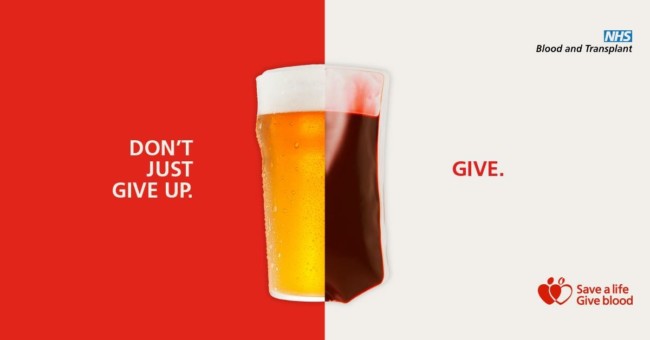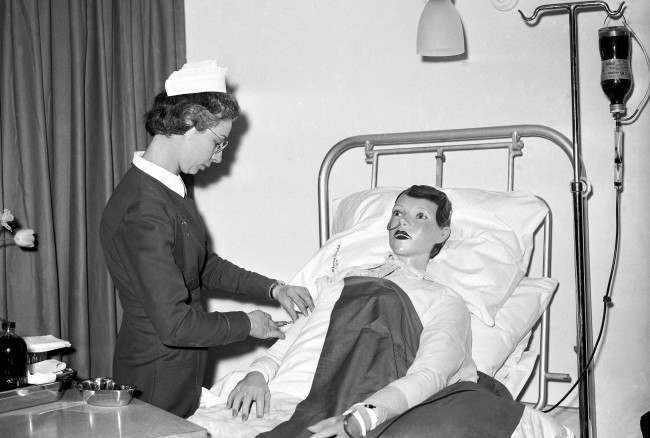Posts Tagged ‘NHS’
Covid-19: The NHS is scared of Gwyneth Paltrow

Reading of a senior NHS leader’s response to Hollywood star Gwyneth Paltrow’s Covid-19 routine minded me of a joke told by the abrasive Glaswegian comic Jerry Sadowitz. “Prince Diane put her hair in a bun,” he begins, “and her **** in a toaster.” How much information do we need and what does it have to do with us? The BBC reports that Paltrow has a “duty of responsibility” when talking about Covid treatments. Paltrow is not a doctor, not medically trained and the last time I looked made a living pretending to be other people to deadline. Jane Seymour’s views on Covid-19 are unknown, but when Dr Quinn Medicine Woman breaks her silence the NHS will surely be all ears.
Paltrow says he had Covid-19. It left her with “some long-tail fatigue and brain fog”. She took her foggy brain to see a “functional medicine practitioner”, who had advised “intuitive fasting”. She takes “ketop and plant-based diet”, never eats before 11am and partakes in “infrared saunas” (aka: sitting too close to patio heaters).
NHS England’s Prof Stephen Powis says such methods are “really not the solutions we’d recommend”. Well, hard cheese. Paltrow never consulted you. But Prof Powis never studied for years to support such stuff and says that he is more into “serious science”. “Like the virus, misinformation carries across borders and it mutates and it evolves,” he says. “So I think YouTube and other social media platforms have a real responsibility and opportunity here… We need to take long Covid seriously and apply serious science. All influencers who use social media have a duty of responsibility and a duty of care around that.”
The message is clear: listen to us; don’t listen to them. I’m want to be an influencer. And you’re all thick.
Posted: 25th, February 2021 | In: Celebrities, Key Posts, News | Comment
Clap for the NHS with Nigel Farage
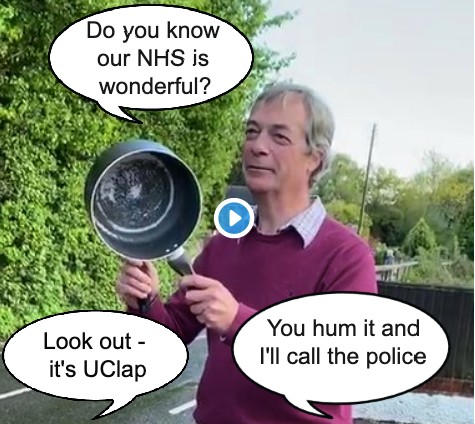
Every Thursday since (how long has it been now?) people have been coming onto the street to clap for the NHS. If you can’t clap, either download the Clapp App (TM) or bang a spoon on your saucepan or tin hat. And, as in Stalin’s Russia, no-one wants to be the first to stop clapping. Everyone’s doing in. Here’s Nigel Farage:
Anyone know what he’s tapping out in Morse Code?
Posted: 1st, May 2020 | In: Celebrities, News | Comment
The NHS advert for staying at home during coronavirus crisis features a headless woman trapped beneath two laughing women and a dog
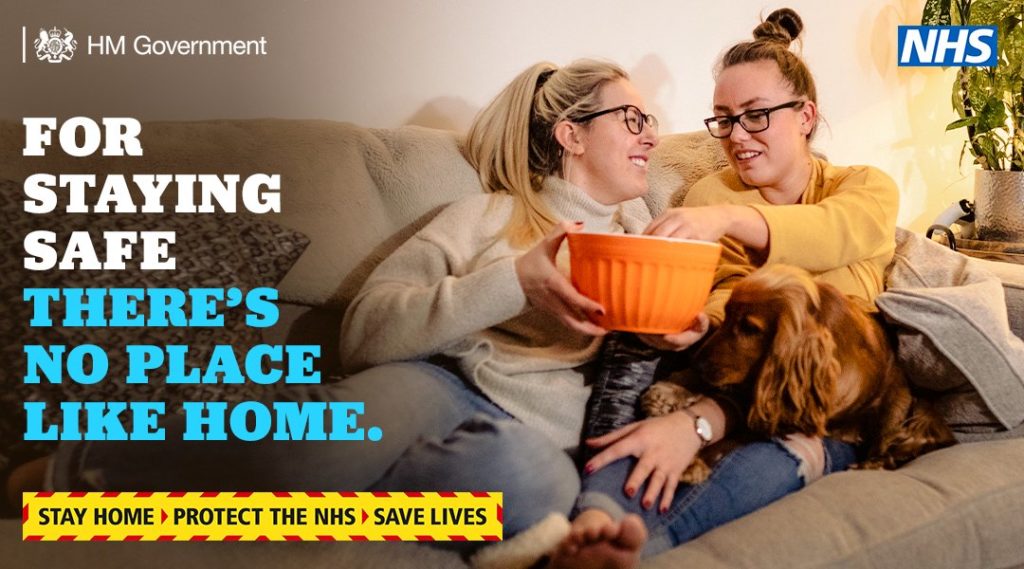
The NHS advert tells us to Stay At Home. Yeah, you can go out to exercise for an hour a day. And you can go shopping. And if you’re in the police force you can stand on a bridge and clap. But STAY AT HOME! One tip to prevent any urges to leave the home is to trap yourself beneath two fiends and a dog.
File under: it’s amazing what you can find down the back of a sofa.
Posted: 19th, April 2020 | In: Key Posts, News, Strange But True | Comment
Coronavirus: When Dr Amgad El-Hawrani died the media went into overdrive
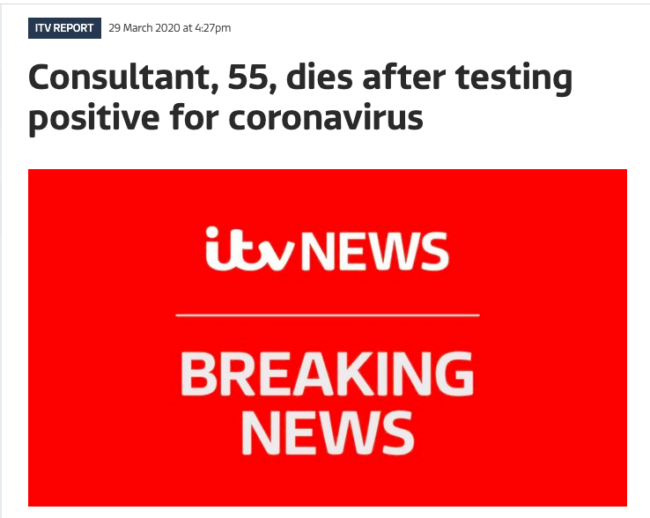
When Dr Amgad El-Hawrani died the media went into overdrive. Dr El-Hawrani, 55, was an NHS ear, nose and throat consultant at Derby and Burton hospitals. He died last night at Leicester Royal Infirmary. He had tested positive for coronavirus Covid-19. Thoughts should be with his loved ones. But big media has a narrative.
Sky News says he “died after testing positive for coronavirus”. No mention is made of any other health concerns Dr El-Hawrani might have suffered. The Independent says: “NHS England has said the 55-year-old was the first front-line worker to die in the fight against Covid-19.” ITV makes the link between his profession and the illness explicit: “Consultant, 55, dies after testing positive for coronavirus.” He was, says the Leicester Mercury, “the first hospital worker to be killed by Covid-19 in this country”. But we do not know how or where he contracted the disease nor if his work was linked to his getting it and dying. Was he tested because he was a hospital patient or a hospital worker? Did he die with the disease or from it? Did work with private patients contribute to his death?
Only the Mirror says the doctor’s efforts in fighting coronavirus contributed to his death. But not one other publication says the same, which is unusual, especially given how when one paper breaks a story the others rush to copy it, as with the tragic case of Chloe Middleton. Says the Mirror:
An NHS consultant who contracted coronavirus while on the frontlines of the battle against the virus has died in hospital at the age of just 55.
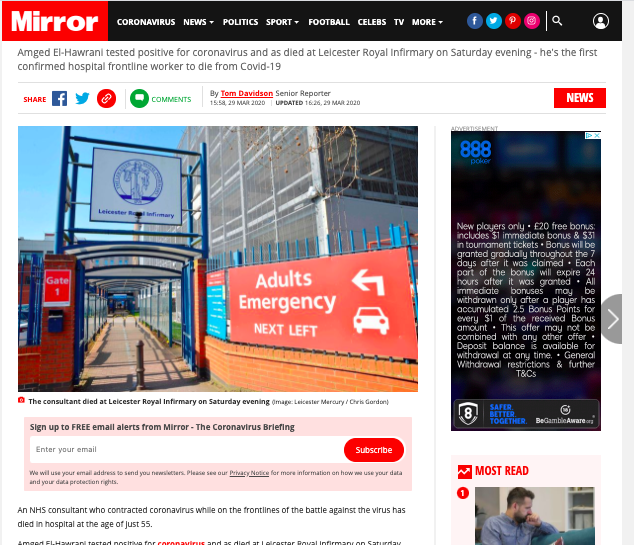
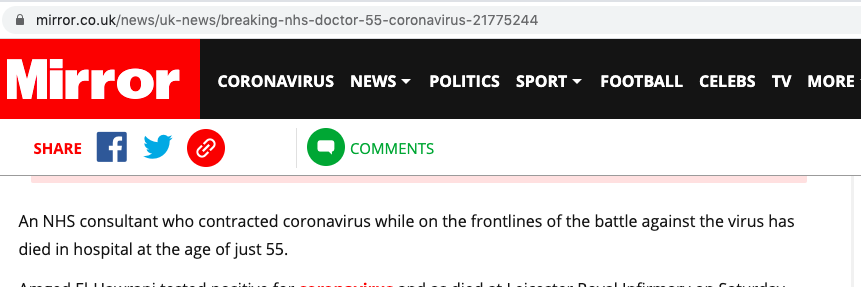
These are worrying times for NHS workers and all medial professional whose jobs bring them into contact with very ill people. Some circumspection is required if anxiety is not to spread.
Oh, and according to the NHS, it is Dr Amgad El Hawrani nor Amged, as every single mainstream newspaper’s website reported it as:
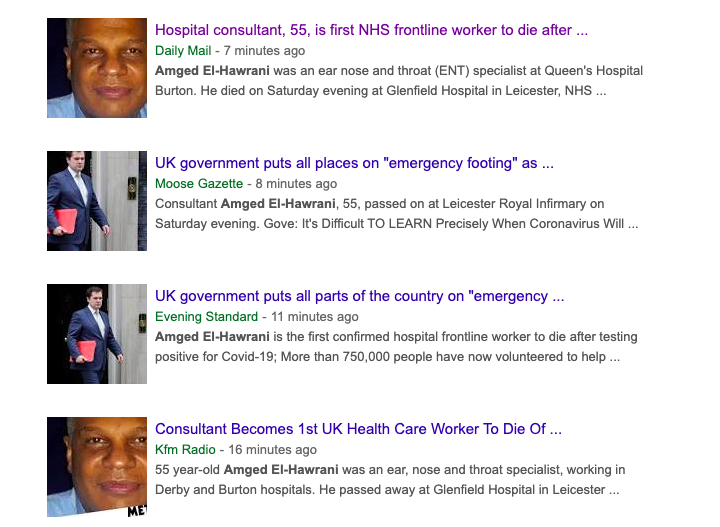
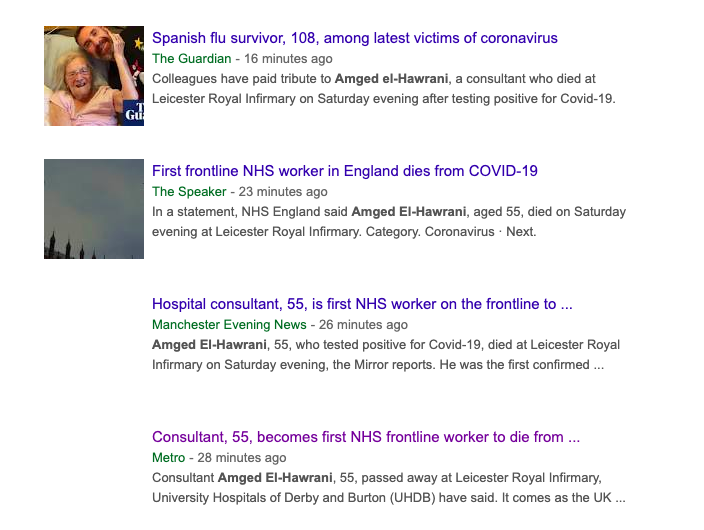
Such are the facts…
The secret of longevity: fat, sugar and booze
Eileen Maher is “30 years older than the NHS” says the Indy. We like a new measurement – length measured in football pitches and double-decker buses, height in St Paul’s Cathedral and weight in Victoria Beckhams are old hat. So it is that the planet is about 6,000 years old than the NHS (source: Creationists), Brexit is 68 years younger than the NHS and Eileen Maher is celebrating her 100th birthday. And according to the Indy, she “credits custard creams and Stella for her long life.”
She does? We hope so because if true Jamie Oliver and the moralists running the NHS will be having a fit. “Eileen’s not big on bubbly so her favourite tipple was on tap – Stella Artois,” says a woman at the care home where Eileen lives.
For her birthday bash, Eileen topped off the lager and biscuits with some cake and sherry. Meanwhile… over in the NHS, fat, sugar and booze are off the menu…
Posted: 23rd, July 2018 | In: Strange But True | Comment
After Gosport let’s rip up the NHS
Dr Jane Barton was in charge of prescribing medicine on the wards of Gosport War Memorial Hospital, Hampshire. The Sunday Times say she was “found responsible last week for the deaths of up to 650 people and a culture in which powerful opiates were routinely and recklessly prescribed”. Tough words. Surely her work “potentially contributed to the early deaths of hundreds of patients”? One thing is certain: this a scandal for the NHS to deal with. Health and Social Care Secretary Jeremy Hunt goes on the record:
“The basic problem is that if you are a doctor or a nurse and you see something going wrong – even if you are perhaps responsible for a mistake yourself – the most important thing, the thing that families want if they are bereaved or if they have a tragedy, is to know that the NHS isn’t going to make that mistake again.”
Is this to be an other story which ends with the line “lessons have been learned”?
“We make it much too hard for doctors and nurses to do that – they are worried that there will be litigation, they will go up in front of the GMC or NMC, the reputation of their unit – in some places they are worried they might get fired, so we do have to tackle that blame culture and turn that into a learning culture.”
The stand -out part of his address to the scandal is that “the lives of over 450 patients were shortened by clinically inappropriate use of opioid analgesics”. Live were shortened sounds like a euphemism. The Sun puts it on balder terms: their lives were “snuffed out”. Thinks ,less of the ignored whistleblower and families of the dead and marvel at how many people must have said nothing or worse. Says the Sun: “The health service is, in the main, an admirable institution. But it also gave us serial killer Harold Shipman, the Mid-Staffs outrage, the baby deaths at Bristol and Morecambe, and now hundreds killed in Gosport as staff closed ranks.” Anyone using the word “systemic” should be removed from the debate. This is about people. “Scandals like Gosport will be repeated until government targets are banned,” says one Guardian writer. Blame the system and everyone escapes.
Professor Sir Brian Jarman, director of the Dr Foster Unit at Imperial College London, says what happened at Gosport could be occurring elsewhere, because whistleblowers are “fired, gagged and blacklisted… nobody dare whistleblow in the NHS”.
The obvious question, then: why not blame the NHS and question its role? Why blame the system and not the body? Catherine Bennett wonders:
If the propensity to sanctify the NHS, to the point of worshipping it at the Olympics ceremony, helps explain occasional unwillingness to recognise its fallibility, and correspondingly exaggerated self-belief on the part of some practitioners, the Jones report doubles as a 370-page case for deconsecration. Although just a quick reading of Learning From Tragedy, p25, “a new approach to complaints and concerns”, would be a start.
And what of the technology? The Sunday Times has focused a report on the “cheap, faulty syringe pumps” used in palliative care.
The pumps, or drivers, used in the NHS for at least 30 years, led to the rapid infusion of dangerous doses of drugs into the bloodstream and made the behaviour of Dr Jane Barton — in charge of prescribing medicine on the Gosport wards — even more dangerous than had been thought
Would you put a member of you own family on such a pump – one you didn’t want to bump off?
The whistleblower said: “This could be one of the biggest cover- ups in NHS history. Anyone who has lost their granny over the past 30 years when opiates were administered by this equipment will be asking themselves, ‘Is that what killed Granny?’”
Amazing, no, how many old people can have “their lives shortened” before the rest of us take notice.
And what of the money all politicians of every stripe want to toss at the NHS? Is the NHS snow so big and bloated it can’t be questioned? If MPs and ministers can’t excerpt power over it, what chance does a nurse or hospital porter have of exposing serious wrongdoing?
A private word now: had I relied on the NHS I’d be living in a wheelchair or much worse. The NHS does much great work, but it was the sixth opinion – the first from a private doctor – that saved me. Our leaders venerate the NHS. It is beyond blame. But an organisation which has to cancel 50,000 operations to handle winter flu is not best serving the people.
Tim Black notes that questioning the NHS is heresy:
Few politicians question whether simply throwing money at the NHS is the best way forward. Or dare suggest that there are some things the NHS does, especially its intrusions into people’s lifestyles, that are detrimental to our political and social health. Or point out that its excessive managerialism and target-setting lead to routinised carelessness. Because, in the estranged world of the political class, invoking the NHS is seen as just about the only way to speak to us with any authority. The NHS is now the answer to nearly every party-political question. Why are we raising taxes? To support the NHS. Why are we leaving the EU? To benefit the NHS. Why are we better than them? Because we love the NHS more.
A final thought: if there were no NHS and we needed a body to provide medical care at the point of need at no extra cost, would anyone design the NHS as is it now? Surely not. It’s time to rethink the enterprise and come up with something that serves us all better.
The NHS needs £2,000 more per household
There’s a report out insisting that to keep the NHS angels treating our woes we’ll all have to stump up £2,000 more a year. Or at least, we need more taxes of about £2,000 per household to pay for it all. It’s not entirely obvious that this is actually so:
Taxes will “almost certainly” have to rise over the coming years simply to prevent the National Health Service and social care system from slipping further into crisis, a major new report concludes.
It needs a lot of cash:
Funding the projected increases in health spending through the tax system would need taxes to rise by between 1.6 and 2.6% of GDP – the equivalent of between £1,200 and £2,000 per household, the experts said.
There’s a problem with the report.
The Institute for Fiscal Studies and Health Foundation said the NHS would need an extra 4% a year – or £2,000 per UK household – for the next 15 years.
It said the only realistic way this could be paid for was by tax rises.
A detailed report of how they’ve gone wrong is here. A simple one is as follows.
Ever since it started the NHS has had a higher inflation rate than the rest of the economy. This isn’t a surprise, we expect services to rise in cost relative to manufactures. No, don’t worry about why (“Baumol’s Cost Disease”) but it’s something that we have seen is true for hundreds of years and we expect it to continue to be true. Except, except – this is only true if we don’t try to change the manner in which we do things. If we attempt reform then it is possible that we’ll prevent that rise in costs.
What have we been doing since 2010? Yup, that’s right, we’ve been “destroying” the NHS by bringing in all those market and competition ideas, haven’t we? And a remarkable thing has happened. Since 2010 is the only time that the NHS hasn’t had a higher inflation rate than the rest of the economy. Quite the contrary in fact, prices for the same output have been falling in the NHS relative to those prices in the rest of the economy. Since 2010. Since we started to reform the NHS. By having those markets and competition.
That is, NHS reform actually works to solve this problem in this report. So, it isn’t – necessarily at least – that we need more tax money for the NHS. We could continue what we’re doing, which is to continue to reform the NHS, more markets, more competition, and deal with the problem that way. After all, we’ve got the proof of the past 8 years that it does actually work.
What’s bad about this report is that all of the information I’ve just used is in that very report. They just don’t manage to piece it together.
NHS wages: multiplier effect v opportunity costs
If you pay the NHS’s legion of workers more money, they’ll spend it and everyone will be better off. Anyone with even a rudimentary understanding of economics will recognise that as only partly true. But in the Guardian, it’s just a magical fact. Faiza Shaheen tells readers about the “muliplier effect”. She does not mention opportunity cost, of which more later:
Putting the direct costs of the pay cap to public services aside, there is also the so-called multiplier effect to consider. This means when you give someone a pay rise, there are larger positive implications for the economy because it can stimulate further rounds of spending. For example, if there is a £2bn increase in wages for NHS workers and they spend just half of this in shops, then shopkeepers will also receive income.
True. But why not just cut taxes and rates for shopkeepers. Same result, no? Around 2.7 million people work in retail in the UK. It is the nation’s biggest employer. Around 1.2 million of us work for the NHS.
In turn, this increase in income will mean shopkeepers are more likely to employ more people and increase salaries themselves.
Shopkeepers are booming. Will others want to get in on the boom and open their own shops, perhaps undercutting the existing outfits? Indeed, in May 2017 Chris Hopson, NHS Providers’ chief executive, told the Guardian: “Years of pay restraint and stressful working conditions are taking their toll,” he said. “Pay is becoming uncompetitive. Significant numbers of trusts say lower paid staff are leaving to stack shelves in supermarkets rather than carry on with the NHS.”
Back to Shaheen:
The treasury would then not just receive more taxes from higher wages among NHS staff, but also the VAT on extra goods sold, and on higher income taxes from jobs created elsewhere.
Of course, some of the State’ investment in NHS staff will return to central Government. But that misses the point.
The multiplier effect is thought to be higher for those on low-middle incomes, as they are much more likely to spend it than save it or put it in a tax haven. According to a Unison study based on International Monetary Fund figures, every 1% increase in public sector pay would generate between £710m and £820m for the government in increased income tax.
Tim Worstall notes:
That money has come from someone. Might be tax, might be borrowing, but those who had it would have also spent some portion of it into the economy. Even if we say that borrowing means it is obviously only coming from savings if those savings weren’t put into gilts then it would have been invested elsewhere instead.
What we actually want to know is what is the effect after this? This is known as the marginal propensity to spend (or save, the inverse). If we take tax off low paid people and give it to low paid people then the net effect is nothing. Because whatever the marginal propensity to spend of the poor is, it’ll be the same or those who lose money as those who gain it. If we take money off the rich then there will be a change. But that change is not the amount of money itself. It’s the difference between what the rich would have spent and the poor do spend. A useful rule of thumb here is some 15%. Upper middle classes might save 15% of any marginal income, the poor 0%, that’s the amount that spending rises by.
Do also note that this only applies to tax funded increases in such wages. If it’s from what is already being saved well, those savings would have been used to invest in some other thing if not borrowed by government.
Spotter: The Guardian
Posted: 19th, September 2017 | In: Broadsheets, Money | Comment
Shropshire Hospital rejects donations from fund-raising transvestites
Many men like dressing up as women: sailors, rugby players, the headmistress at St Trinian’s school, East German athletes and Glamour magazine’s woman of the year. So too men on a fundraising drive for Shropshire Community Health NHS Trust. The lads dressed up as female nurses and shook their tins in the streets of Ludlow, Shropshire. People dug deep in their pockets and donated a none-too-shabby £2,500.
But the money is no good. It’s dirty. The hospital has rejected the cash, saying the way it was earned was “highly-sexualised” and “demeaning”.
The Trust’s letter to the Ludlow Hospital League of Friends, which raised the cash, opines: “The presentation of men dressed as female nurses in a highly-sexualised and demeaning way is wrong, very outdated and insulting to the profession.”
Indeed. If nurses are to be demeaned by anyone it will be by pen pushers, male doctors and MPs, which is far more modern and progressive.
NHS complaint letter of the year
When Yael Biran fell and broke her elbow, the mother of two sought treatment at her nearest NHS hospital in Lewisham, London. Her experience led to a bought to letter writing:
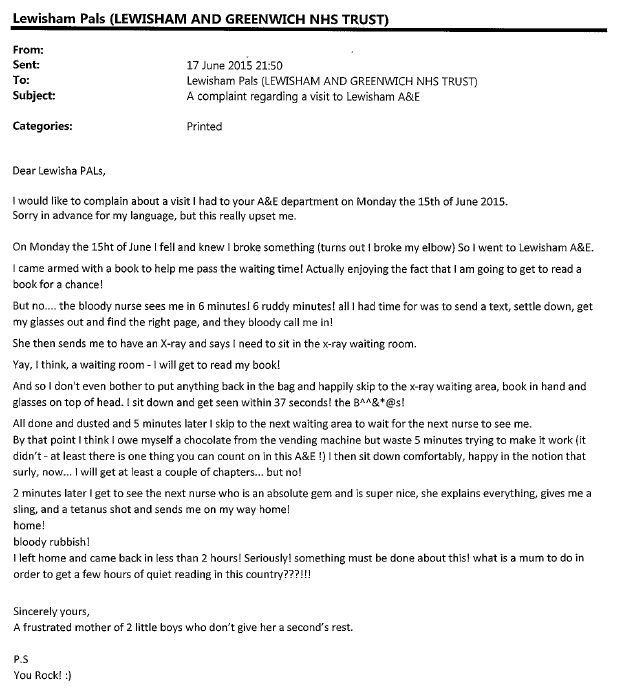

NHS balls: Margate Hospital fast-tracked RAF man in ‘ofensive uniform’ for cultural reasons
 When RAF aircraft engineer Mark Prendeville, 38, was injured at work he was taken to A&E at Margate’s Queen Elizabeth The Queen Mother Hospital in Margate, Kent.
When RAF aircraft engineer Mark Prendeville, 38, was injured at work he was taken to A&E at Margate’s Queen Elizabeth The Queen Mother Hospital in Margate, Kent.
What happened next is little unclear.
The Sun: “AttenSHUN!EXCLUSIVE: Hospital moves RAF man over ‘offensive’ uniform”
AN RAF sergeant taken to A&E after a training accident was moved by hospital staff who said his uniform would upset other patients… workers twice ushered him into empty corners, claiming his camouflage fatigues may offend other patients
The source of the story appears to be Mark’s father Jim, 63, a former Sgt Major with the Irish Guards:
“Mark was moved because of his uniform — he was told that twice. The first time, they asked him to move around the corner. Then someone else came out and took him around another corner so no one would see him. They said they didn’t want to upset people in the hospital. The words they used were, ‘We’ve lots of different cultures’ coming in. Mark was quite annoyed, but he’s a quiet lad and he didn’t want to kick up a fuss.”
Well, that desire not to cause a fuss is today’s front-page news.
Comrades took the married 38-year-old — a war veteran of both Iraq and Afghanistan — to A&E, where a member of staff ushered him to an empty corner of the waiting room. Dad-of-one Mark, wearing camouflage fatigues, was then moved again round a corner by another worker.
He was sat away from all other patients.
Well, maybe.
Daily Mirror:
Aircraft engineer Mark Prendeville, 38, was taken to an empty corner of the waiting room before being moved behind a corner by hospital staff – form fear of upsetting the “different cultures coming in”
The Mail:
Staff moved him to sit in a corner before asking him to sit behind a wall.
Daily Express: “Outrage as hospital moves injured RAF veteran out of A&E because he was wearing uniform”
A spokesman for East Kent University Hospitals NHS Foundation Trust apologised to Sgt Prendeville for “any embarrassment”.“A member of the armed forces in uniform attended our A&E and was asked by a member of staff if he wanted to sit inside the department rather than the waiting room. This employee was acting in good faith because previously, there had been an altercation between a member of the public and a different member of the armed forces in uniform.”
Rather than having to sit with the riffraff in A&E, Mr Prendeville was taken inside the department.
And there can be nutters in A&E. Take these stories from July 2015:
A hospital patient threatened to “kill” staff as he assaulted two nurses, a court heard. Aaron Stewart, of Bentick Court in Manvers Road, Sneinton, also grabbed one of the nurses in a headlock, clenched his fist and said he would “smash you all up” after being admitted to the Queen’s Medical Centre with a cut hand.
And:
A doctor and nurse were attacked by a violent patient high on drugs. Jennifer Coxon, 25, also shouted vile abuse at other patients waiting to be assessed at the Accident and Emergency Department of Manchester Royal Infirmary.
Might it be that Mr Prendeville was given treatment faster than those not in uniform?
Posted: 26th, September 2015 | In: Reviews | Comments (3)
The truth about dentistry at the ‘gleaming’ Dover immigration removal centre
In “DEPORTATION SCNADAL”, the Sun focuses on dentistry at Dover immigration removal centre, aka The Citadel.
“£4m Dental Suite Built For Illegals”
Adding:
Deportation scandal sees migrants leave with gleaming teeth
As the deported bare their new teeth, the Sun reports:
They are seen within six days at the surgery at Dover Immigration Removal Centre. But locals face a six-week wait at nearby public surgeries. The suite is run by five NHS dentists backed up by over-the-phone interpreters. It was built after detainees complained it was too much hassle being cuffed and escorted to off-site appointments…
Sharon McNeill, 46, waited weeks to have a tooth out. She said: “The way we cater to their needs is out of control.”
Read the rest of this entry »
Daily Mail story on foreign nurses is utter balls
News in the Daily Mail of nurses and foreigners: come over here, saving our lives:

The truth, you will not all surprised to learn, is somewhat different.
The Health and Social Care Information Service (HSCIS) notes:
Of all the joiners with a known nationality between April 2013 to April 2014, 20.8 per cent (6,704 out of 32,251) were non-British; Similarly, of all the joiners with a known nationality between September 2013 to September 2014, 22.0 per cent (7,449 out of 33,838) were non-British.
Such are the facts…
The
Posted: 19th, December 2014 | In: Reviews | Comment (1)
Daily Express Scares Readers With NHS Norovirus Horror Story
THE Daily Express leads with chilling news:
WARNING OVER KILLER WINTER BUG
Yikes!

Read the rest of this entry »
Viagra To Be Used To Treat Heart Disease
You and I might think that giving blokes with weak hearts Viagra so that they stride around with stiffies might not be all that good an idea. Which shows how much we know, eh? For the medical profession is urging exactly that: got a weak heart, get a stiffie!
A daily dose of Viagra could become a safe treatment for heart disease, researchers have said, after finding it improved blood flow.
The drug, normally used to treat erectile dysfunction, was found to prevent changes to the heart associated with disease.
Because it is already on the market and known to be safe, the researchers said there was no reason it could not be used immediately but said larger trials would be beneficial.
It’s not actually quite as stupid as we’ve made it sound. for there is a certain section of heart muscle that is very similar indeed to the muscles used to gain an erection. And Viagra works on those extremely similar muscles in exactly the same way, beneficially in both cases. So, for that particular kind of heart problem it’s not a bad idea at all.
But the real joy of this finding is that it brings the whole story full circle. For Viagra was originally designed as a drug to treat heart disease (a very slightly different kind that it’s now being touted for). And they found out, when they tested it on various groups of both male and female pensioners that the men didn’t want to give their extra tablets back at the end of the trial while the women didn’t are a hoot about that. At which point a little more investigation was done into why the men didn’t want to give the pills back and thus was found the effect. That the drug didn’t do all that much for the heart but it provided those stiffies that the older male can find so elusive. Especially, given the way that erections work, those that have heart problems find so difficult to attain.
Of course, Viagra has actually been treating heart disease all these years anyway. Even a few minutes now and then of gentle and stimulative exercise is known to have a beneficial effect upon the heart so those stiffies have been put to good use in the treatment of the more general condition.
No More Boob Jobs On The NHS!
NO more breast augmentation operations will be available on the NHS. At least that’s the promise, that there should be no more fittings of Bulgarian Airbags, or boob jobs, on the NHS.
Cosmetic surgery should not be paid for by the taxpayer, Jeremy Hunt said today in a clampdown on NHS spending.
The Health Secretary said he could understand public anger at high profile cases of breast enlargements, dental work and slimming treatments being offered by the health service.
Mr Hunt insisted that all decisions must be taken on ‘clinical need’ and public money must not be used to pay for surgery just to improve someone’s looks.
Of course, this doesn’t cover women getting reconstruction work after surgery for breast cancer. Or anyone at all who the doctor says is being made really miserable by not having the cosmetic surgery done. Which means that this changes absolutely nothing in fact for the NHS doesn’t do purely cosmetic surgery anyway.
Read the rest of this entry »
Obesity, Booze And Fags Don’t Cost The NHS Money: They Save It
IT’S rather sad to see the people who actually run the NHS being so confused about the realities of that very NHS. The latest being this idea that all of us becoming fat lardbuckets will mean that the NHS runs out of money. So, therefore, we’ve all got to be dragooned into eating less so as to save the taxpayer.
The problem with this is that fatties don’t cost the NHS cash, they save it. Here’s the standard story:
Read the rest of this entry »
Posted: 9th, June 2014 | In: Money, Reviews | Comment (1)
How Excellent: The NHS To Start Charging For Doctor’s Appointments
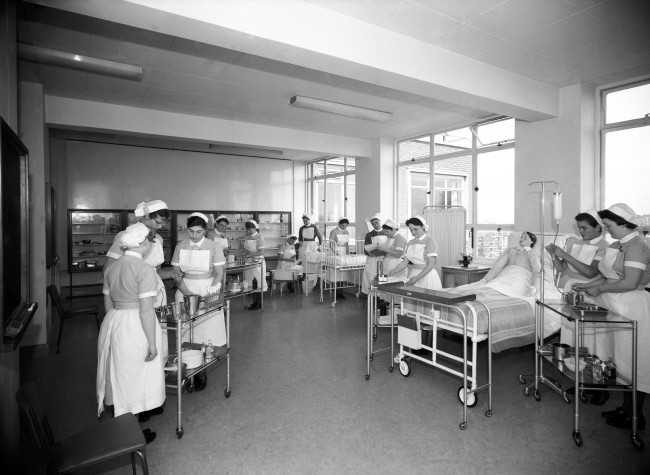
New facilities for St. Bartholomew’s Hospital, London: The demonstration room for the new nurses home.
Date: 30/05/1961
THIS is going to cause an awful lot of shouting around and about the place but it’s also an excellent idea. That the NHS should start charging people when they make a doctor’s appointment. The shouting will come from those who insist that the NHS must be free at the point of use. The excellent part comes from the way in which the NHS should not be free at the point of use.
Here’s the report:
GPs are to hold a vote on charging for appointments.
The idea is to deter patients from missing consultations – a problem that costs £160million a year. The fees – possibly between £10 and £25 – would be the first since the NHS was founded in 1948.
One GP said an entire morning’s work was lost when 14 patients failed to turn up. Others believe the free care offered by the Health Service is unsustainable in the face of an aging and increasingly obese population.
It is feared however that charging would stop patients seeking help or encourage them to go to overstretched casualty units.
The proposal is to be debated at the British Medical Association’s local medical committee conference in York on May 22.
Read the rest of this entry »
Posted: 7th, May 2014 | In: Money, Reviews | Comment (1)
Why The Hell Do We Have Markets Now In The NHS?
A NOT uncommon question: why the hell do we have markets now in the NHS? Given that everything is being paid for by the taxpayer, shouldn’t we have the politicians, those representatives of the taxpayer, organising and running the NHS? Why should we let some private firm come in and skim some profit out of such a vital national resource?
The answer comes from something very few understand. Here’s a complaint about how much money the NHS needs as against how much it is getting:
The insatiable growth of the NHS’s demands for cash have never been more graphically illustrated than under the present government. Though “ringfenced” from the coalition’s spending cuts, the NHS is widely believed to be deteriorating to the point of collapse because it needs an annual budget increase of at least 4% (in real terms) to meet rising expectations. It probably needs more, as cuts in care services put extra burdens on GPs and hospitals.
Read the rest of this entry »
1959: A Nurse Injects A Dummy At The Nursing & Health Exhibition
FLASHBACK to March 2 959:
Nursing & Health Exhibition at County Hall: A nursing sister shows how an injection is given. The exhibition was organised by the London County Council.
(Because dummies are terrifying.)
Posted: 18th, March 2014 | In: Flashback, Photojournalism | Comment (1)
Maybe It’s Just Because The NHS Is Rubbish? Obamacare, Listen Up
ANOTHER report out, another report insisting that it’s the inequality that’s killing people:
Women and children in the UK would have longer and healthier lives if they lived in Cyprus, Italy or Spain, and Britain is facing “a public health timebomb”, according to a study by an expert on inequality and health.
Sir Michael Marmot, who is known worldwide for his work on the social determinants of health, says much of the rest of Europe takes better care of its families. Life expectancy for women and death rates among the under-fives are worse in the UK, where there is also more child poverty.
The public health time bomb Marmot describes is caused by the large number of so-called Neets – young adults who are not in education, employment or training.
Well, it could be that. But there is a problem with Marmot and his research. He just never does look properly for all of the various things that could be causing the problems he notes.
Read the rest of this entry »
We’re all getting diesel generators to beat climate change – WTF!
THIS has to be the most insane side effect of the hysteria over climate change yet: we’re all supposed to kit ourselves out with diesel generators:
NHS hospitals are being asked to cut their power demand from the National Grid as part of a government attempt to stave off power blackouts, which the energy watchdog Ofgem warns could arrive as early as 2015.
According to one energy company, four hospitals have already signed up to a deal under which they will reduce demand at peak times by using diesel-fired generators.
Read the rest of this entry »
Daily Mail takes on Mumsnet and loses horribly
HOW media works: Zoe Brennan wants readers of Mumsnet to help her with a story:
I am writing a feature for The Daily Mail about the increase in the number of children being sent to A&E. Figures released earlier this week show an increasing number of youngsters are sent direct to hospital, because GPs are reluctant to treat children. Babies in particular. This means long waits, and inappropriate care. Has your child been sent to A&E with a common infection or minor injury by your GP or NHS Direct? Have you an opinion on this subject, as a parent?
Read the rest of this entry »
Posted: 25th, February 2013 | In: Reviews | Comment (1)
The Puritan anti-fat health Nazis have lied to us it on BMI
THE BMI measure is wrong:
Dr Katherine Flegal, of the National Centre for Health Statistics in the United States, found that people who are overweight had a six per cent lower risk of death than normal weight people.
The risk for those with a BMI (body mass index) of between 30 and 35 fell by five per cent. But those grossly obese with a BMI above 35 were 29 per cent more likely to die than slim people of the same age.
Read the rest of this entry »
‘Reasonably good’ Bolton doctors produce a cracking website
THE website of Bolton’s Dr. Surinder Singh and Dr. Stephen James Authe is a gem. They say of their surgeries on Halliwell Rd and Wyresdale Rd:
Hello, and welcome to our surgeries.
We operate a friendly 2-doctor 2-site (Wyresdale Road and Halliwell Road) practice, where we hope to provide a reasonably good standard of medical care. We do not pretend to be the best NHS surgery under the sun…
Read the rest of this entry »
Posted: 19th, November 2012 | In: The Consumer | Comment

